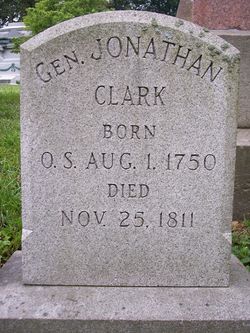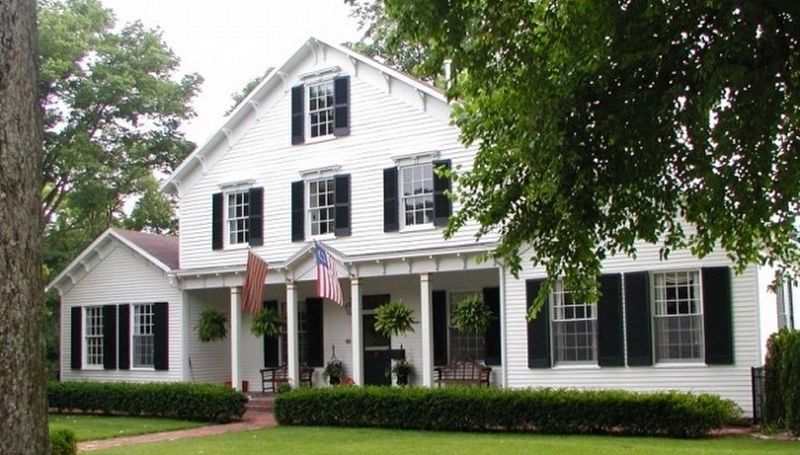Captain/Major Jonathan Clark (Clarke)
One of the Lesser-Known Heroes on the Valley Forge Muster Roll
by Henry Pei
Jonathan Clark was the oldest son of John Clark and Ann Clark, born August 1, 1750, in Albemarle County, Virginia. The next child was George Rogers Clark, who just happened to be on his way early in 1778 to take Kaskaskia and the Northwest Territory while Jonathan was at the Valley Forge Encampment. In fact, five of Jonathan’s six brothers also served as officers in the American Revolutionary War. The youngest, William, born in 1770, later joined Meriwether Lewis for the Lewis and Clark Expedition. Prior to the Revolutionary War, Jonathan Clark worked as an attorney and a businessman.
In 1776 Jonathan Clark was commissioned a Captain of the 8th Virginia Regiment. He already had some experience leading troops against the royal governor of Virginia in the Gunpowder Affair of April 1775. He was present at the battles of Brandywine and Germantown, showing great leadership and valor in battle. As a result, he was promoted to the rank of Major on January 10, 1778, at Valley Forge. After the encampment, Clark fought at Monmouth and later played a crucial role at the battle of Paulus Hook (1779), serving as a commander in a highly successful raid.
The victory at Paulus Hook was a huge morale booster for the Americans. Major Clark was commended for his actions and received several letters of praise. On May 10, 1779, he was promoted to the rank of Lieutenant Colonel for his competence and bravery. Lt. Col. Clark was then ordered to march to South Carolina to aid in the Siege of Charleston where the Americans were hopelessly outnumbered and surrounded by British forces. On the orders of General Lincoln, Clark surrendered on May 12, 1780 and was taken prisoner. He was paroled in 1781 and formally released on May 1, 1783.
Jonathan Clark married Sarah Hite in 1782; they had seven children. After the end of the Revolutionary War, he was appointed to the position of Major General of the Virginia militia. Clark moved to Louisville, Kentucky in 1802 to join several members of his family, including his brother George Rogers Clark, who was then a well-known military hero on the western front. Applying himself, Jonathan Clark acquired a great deal of land and a considerable amount of wealth. He resided at his home in Jefferson County, Kentucky, until he passed away peacefully on November 25, 1811. Jonathan Clark was a courageous military leader who played an integral role in the war effort.
Sources:
https://www.findagrave.com/memorial/7404016/jonathan-clark
https://www.fold3.com/image/23197639
https://archive.org/details/franheitmanreg00bernrich/page/156/mode/2up?q=clark
https://services.dar.org/Public/DAR_Research/search_adb/default.cfm
https://military-history.fandom.com/wiki/Jonathan_Clark_(soldier)
https://www.paulushook.org/battle
https://www.nps.gov/articles/siege-of-charleston-1780.htm
https://www.nps.gov/people/george-rogers-clark.htm
https://scrcexhibits.omeka.net/exhibits/show/sihistory/settlement/revolution
Pictures:

https://images.findagrave.com/photos250/photos/2008/194/7404016_121596042576.jpg

Pictured: Jonathan Clark’s home, “Trough Spring”, which still stands today.
https://www.hmdb.org/Photos5/555/Photo555944.jpg?1292020101600PM
